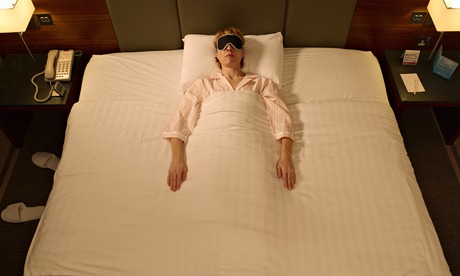
A few years ago I tracked over 3,000 people attempting to achieve a range of new year’s resolutions, including losing weight, exercising more, stopping smoking and drinking less. At the start of the study, 52% of participants were confident of success. One year later, only 12% had actually achieved their goal.
So what can you do to increase your chances of making your 2015 resolutions a reality? It might be as a simple as getting a better night’s sleep. Last month I asked more than 1,000 people to rate both the quality of their sleep and how successful they were at achieving their resolutions. The results revealed a strong relationship, with 60% of people who slept well saying they were able to achieve their resolutions, compared to just 44% of those who slept poorly. These findings build on previous work showing that sleep deprivation disrupts self-control and willpower.
So, if you want to increase your chances of achieving your aims and ambitions this year, here are five scientifically proven ways to improve the quality of your sleep:
1. Avoid the blues
Research has shown that light towards the blue end of the spectrum is especially effective at keeping you awake because it disrupts the production of the sleep hormone melatonin. Unfortunately, computer screens, tablets and smartphones all emit large amounts of blue light. If you must use these devices late in the evening, try turning down the brightness. Better still, avoid them for an hour or so before you head to bed.
2. Busy your brain
If you find yourself lying in bed unable to sleep, tire your mind. For example, think of a category, such as countries or fruit and vegetables, and then come up with an example of that category for each letter of the alphabet, for example, A is for Albania, B is for Bulgaria, or A is for Apple, B is for Broccoli.
3. Get up
If you wake for more than about 20 minutes during the night you might start to associate your bed with wakefulness. Instead, get out of bed and spend about 15 minutes or so reading a book or doing a jigsaw.
4. Fake it
When you behave as if you are sleepy you become tired. To take advantage of this strange effect, let your eyes droop, your mouth hang open, and your arms and legs feel heavy. Sink into your bed as if you have had a long and tiring day in the office. Even fake a yawn or two. In short, fool your body into thinking that it is time to go to sleep.
5. Remember the 90-minute rule
Throughout the night you pass through several “light sleep – deep sleep – light sleep” cycles. Each cycle takes 90 minutes and you will feel most refreshed when you awake at the end of a cycle. To maximise the chances of this, figure out when you want to wake up, then count back in 90-minute blocks to find a time near to when you want to go to sleep. So, if you want to wake up at 7am and go to bed at around 11pm, chunking back in 90-minute segments would look like this: 7am, 5.30am, 4am, 2.30am, 1am, 11.30pm, 10pm. And so you should try to fall asleep at around 10 pm or 11.30pm.
Sleep well, and hopefully you will find it much easier to make your dreams a reality in 2015.

